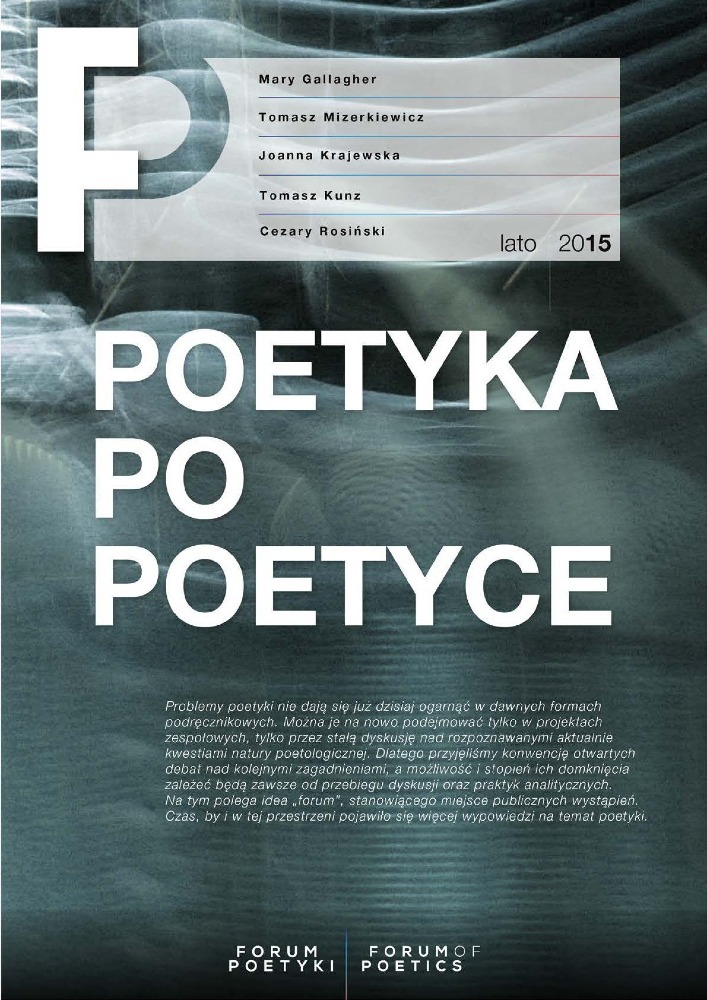No. 1 (2015)
This inaugural issue of “Forum of Poetics” offers some general reflections on the place of poetics as a field of knowledge within the contemporary landscape of philological and humanities scholarship. The formula “poetics after poetics” reminds us that the renewal of discussion about this discipline is taking place after its marginalization to a considerable extent by the Post-Structuralist paradigm, which – to simplify greatly – privileged rhetoric at the expense of poetics. Has something changed in the way that problems of poetics are understood and formulated? Is the field continuing to undergo new transpositions within the humanities, adopting their continuously contemporary and interdisciplinary attributes? Can poetics in some way become reintegrated along new principles and new foundations? The articles in the current issue certainly provide no unambiguous answer to these questions, if only because the voices themselves that speak about the place of poetics in today’s humanities approach from widely varied places and testify to the diversity of imagination on the subject of the current shape of philological knowledge. In inviting these authors to take part in the discussion, and readers to take part in shared reflections, we were acting in the belief that poetics can form an unexpected but very suitable meeting place for a range of methodologies, and its sharply defined questions will help in clarifying positions, aims, and points of view.
In a certain sense, Mary Gallagher’s article is emblematic for this first issue of the magazine. We have translated her text from a book about “world writing,” in which a diagnosis is made of where poetics is situated among the problems created by ethical and political issues seen in the context of globalization processes. The following observation of Gallagher’s may serve as a particular emblem of the reflections contained in this issue, but also, indeed, of the whole enterprise represented by the systematic study of poetics in today’s world: she writes that this kind of enterprise undermines contemporary caution toward or resignation from the problems of aesthetics, poetics, and literature studies. The authors whose work is printed here might even go so far as to say that uplifting poetics, literature studies and aesthetics can lead to some exciting revaluations and innovative cognitive formulations.
Our first publication is imbued with the belief that the problems of poetics cannot, in our day, be captured by the old textbook formulae. They can be newly activated only in collective projects, only through continuous discussion of currently diagnosed problems of poetics. For that reason, we have adopted the convention of open debates on successive issues, and the possibility or degree of their resolution will always depend on the course taken by the discussion and analytic practices. These define the very idea of a “forum,” providing a place for public discourse. The time has come for this space to have more dialogue on the subject of poetics.
